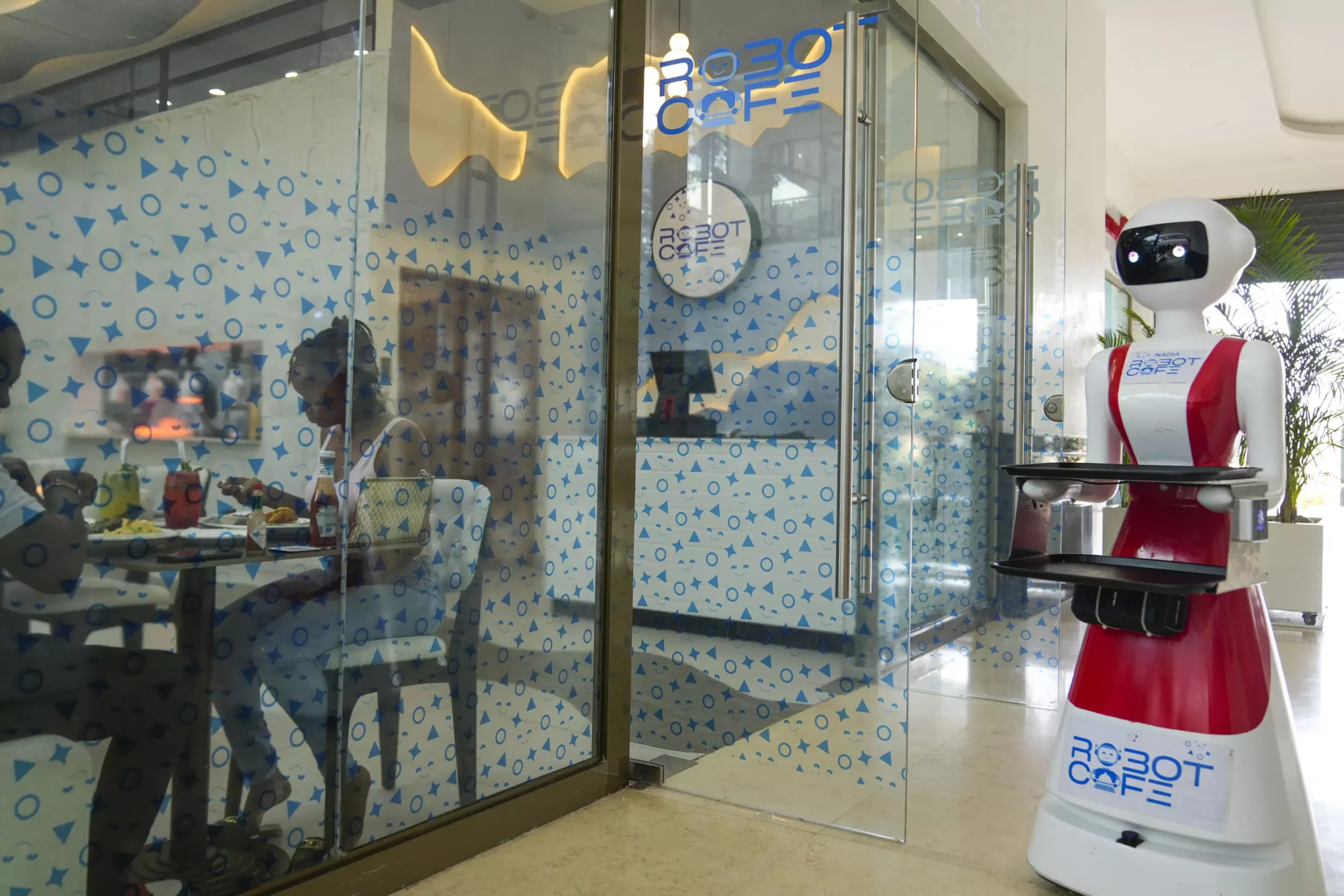In the bustling city of Nairobi, a new trend is emerging in the hospitality industry – the introduction of robot waiters in a cafe setting. The Robot Cafe, located in the heart of Nairobi, has made waves with its innovative approach to customer service. As children giggle and young people whip out their smartphones to capture the futuristic scene, three robots named Claire, R24, and Nadia effortlessly glide among human waiters to serve customers with precision and flair.
At the helm of this groundbreaking venture is cafe owner Mohammed Abbas, who drew inspiration from his travels to Asian and European countries where he witnessed robot service firsthand. Despite the hefty cost of importing the robots, Abbas took a bold leap and invested in this cutting-edge technology, a move that has paid off as the Robot Cafe continues to attract a steady stream of curious customers eager to experience the novelty of robotic service.
Although the robots at the cafe are preprogrammed to deliver orders and greet customers with scripted messages, they are not intended to replace human waiters entirely. According to cafe manager John Kariuki, the human element is irreplaceable in the hospitality industry, as robots are limited in their capabilities and cannot provide the personalized service and warmth that human interaction offers. While the robots streamline certain aspects of the dining experience, human waiters play a crucial role in taking orders, delivering drinks, and ensuring a seamless dining experience for all patrons.
As the global workforce grapples with the rise of automation and artificial intelligence, the hospitality industry stands at a crossroads. Edith Ojwang, a hospitality industry expert, believes that there is space for both robotic and human service to coexist harmoniously. While some customers may gravitate towards the efficiency and novelty of robotic service, others may prefer the personal touch and human connection that traditional service provides. The key lies in striking a balance between automation and tradition to cater to a diverse clientele with varying preferences and expectations.
The emergence of robot waiters at the Robot Cafe in Nairobi signals a new era of innovation and technology integration in the hospitality sector. As the industry continues to evolve and adapt to changing consumer demands, finding the sweet spot between automation and human touch will be critical for success. While the robots may dazzle customers with their efficiency and novelty, it is the human element that ultimately sets the stage for a memorable dining experience. As Nairobi cements its reputation as a tech hub in the East African region, the Robot Cafe serves as a pioneering example of how tradition and innovation can coexist seamlessly in the modern hospitality landscape.


Leave a Reply